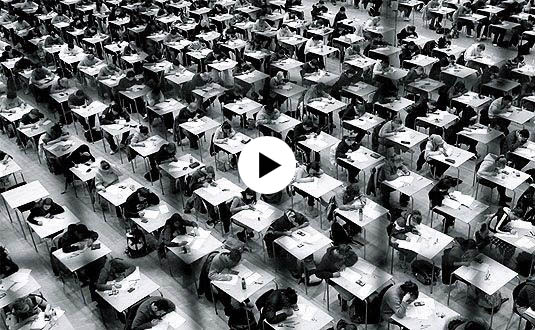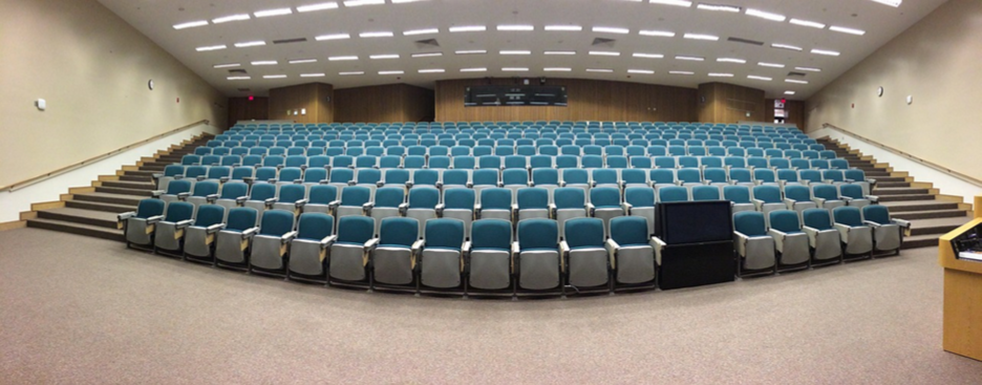Additional Resource
 VIDEO: A powerful short film that covers the origins of the American Public Education System. Make sure to watch through to the end. 8:19
VIDEO: A powerful short film that covers the origins of the American Public Education System. Make sure to watch through to the end. 8:19

It is widely known that our education systems need massive improvement. A great deal of fault lies in the modern education system’s design and approach to learning.1,2,3
This assembly line style of education developed the format of a group of students sitting in a room with a single teacher. The experience was designed to create homogeneity among a group from different racial and religious backgrounds, and ultimately funnel them into careers where they would have to work together. While this served its purpose in the 20th century, it’s standardized and inflexible structure may actually be hurting us today.
Current curriculum mapping in the standardized school system is based on memorization and regurgitation of existing knowledge and information that has been segmented into difficulty levels. These levels have been assigned by a pass/fail testing process that is based on an individual’s ability to retain and reuse specific information to show their proficiency with information at one difficulty level.
Standardization has lead to the process of requiring specific information to be learned by everyone within a class within a certain timeline, and then individuals are graded on their capacity to use that information to pass tests. This model is fundamentally flawed, as grades in one specific skill area are used to judge the capacity of a student across all learning areas. Failure to retain one type of information taught in one area by a single teacher can restrict the student’s ability to excel in many other classes, and can even stop them from progressing in “grade levels.”
In addition, the current standard education model is designed to prepare students for a specific vocation. The goal is to help the student decide on their main job or career, then specialize their studies to learn this one core capacity. Yet because of all the changes that occur for youth during High School and College, graduates often enter the job market and immediately discover that their chosen vocation does not align with their deepest passion or purpose. It’s simply not what they want to spend their lives doing.
How can secondary education be improved to give more value for cheaper cost, and how can we improve the system of helping young people find their passion and hone their skills for life?
Modern education has also failed to recognize, cultivate, and reward multiple types of Intelligence. Under Howard Gardner’s theory of Multiple Intelligence, there isn’t just one kind of smart. He identified nine different types of intelligence 6, all of which contribute to success in life. These go beyond simple mathematics and linguistics; they include interpersonal skills, intrapersonal skills, and even kinesthetic intelligence as core areas for personal development. A test like the SAT has no way of knowing how good someone’s social and emotional skills are, or their creative capacities, all of which are fundamental and crucial life skills in every profession. It is as though the modern educational system has set up a bar that only certain individuals will be able to reach, and in turn, many brilliant youth end up with poor self-esteem and a lack of belief in their capacity to actively participate in creating the world in which they wish to live.
In order to effectively adapt with the technological, social, and environmental renaissance of challenges and developments, we need to move beyond “The American Dream” and look at the variety of roles a Global Citizen might embody during their lives. At the heart of education is the need to inform individuals and prepare them for experiences and events in their lives. One of the deepest challenges for youth coming into our current world is deciding on a path, defining their trajectory into life.
We can address this challenge by making education more integrative and adaptive to an individual’s growth and personal development. An Integrative Curriculum is designed such that each skill to be developed has it’s own independent educational track, and second, that mastery in a skill involves much more than temporary mental memorization of information. We need to recognize all aspects of mastery and cultivate youth skill development in areas where they are naturally gifted.
An individual’s ability to retain and use certain information is not limited to their memorization of that information; instead, it is based on their capacity to integrate that information for both personal and interpersonal use. Learning a skill is only a small part of an integrative curriculum; completion of that curriculum is displaying the ability to apply that skill, cooperate with others, and teach others to use that skill.
Today, each individual student in developed countries has a large degree of free will when it comes to their own future. They will grow up to decide their own career and pursue their own path of lifelong learning. With an integrative educational model that enables students to find a deeper sense of personal purpose, and then develop a wide range of skills that support and empower the fulfillment of that purpose, students are vastly more prepared for the varied dynamics of the modern age.
The Guardian Alliance applies an integrative educational model to empower individuals to access their innate gifts, and develop skills that help them apply these gifts in all areas of their lives.